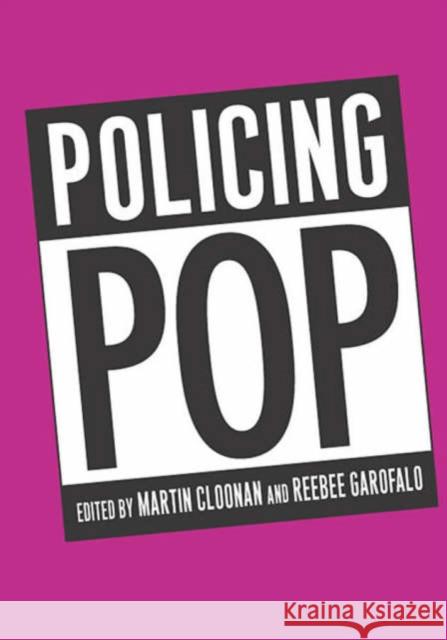Policing Pop » książka
Policing Pop
ISBN-13: 9781566399890 / Angielski / Twarda / 2003 / 255 str.
Fans and detractors of popular music tend to agree on one thing: popular music is a bellwether of an individual's political and cultural values. In the United States, for example, one cannot think of the counterculture apart from its music. For that reason, in virtually every country in the world, some group identifies popular music as a source of potential danger and wants to regulate it. "Policing Pop" looks into the many ways in which popular music and artists around the world are subjected to censorship, ranging from state control and repression to the efforts of special interest or religious groups to limit expression. The essays collected here focus on the forms of censorship as well as specific instances of how the state and other agencies have attempted to restrict the types of music produced, recorded and performed within a culture. Several show how even unsuccessful attempts to exert the power of the state can cause artists to self-censor. Others point to material that taxes even the most liberal defenders of free speech. Taken together, these essays demonstrate that censoring agents target popular music all over the world, and they raise questions about how artists and the public can resist the narrowing of cultural expression. Author note: Martin Cloonan teaches Popular Music Culture at the University of Glasgow and is the author of "Banned! Censorship of Popular Music in Britain, 1967-1992". Reebee Garofalo is Professor at the College of Public and Community Service and is affiliated with the American Studies Program at the University of Massachusetts, Boston; his most recent book is "Rockin' Out: Popular Music in the USA".











